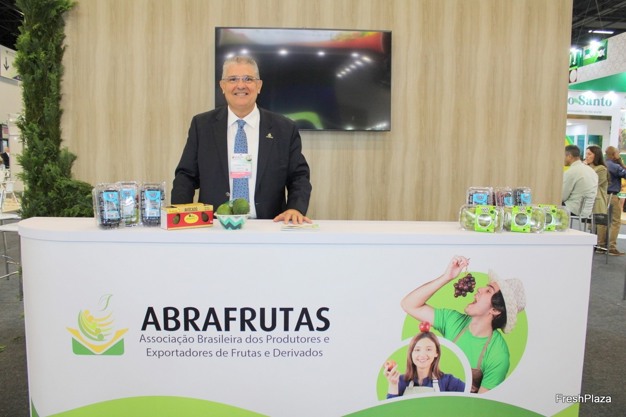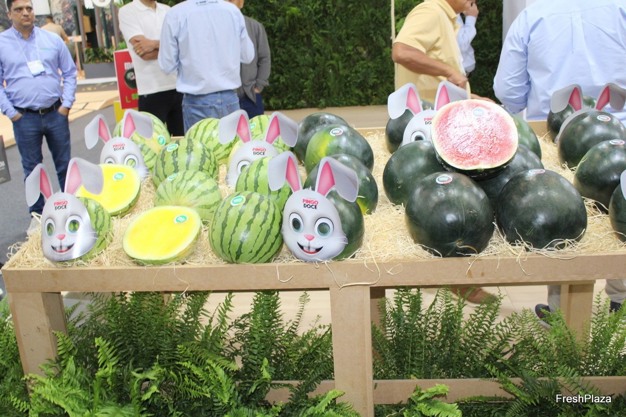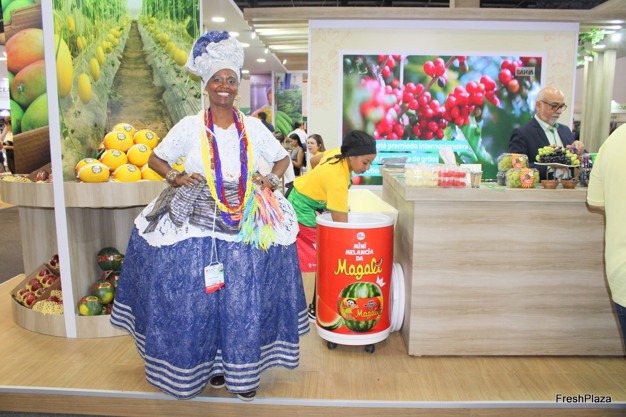The expansion of the Brazilian fruit sector was evident during the Fruit Attraction fair held in São Paulo, which in its second edition doubled in size and is expecting more than 16,000 visitors. The event's full pavilions, live culinary presentations, technical presentations, and business tables reflect the dynamism of a country that is increasingly committed to its agro-export potential.
"We needed a fair in Brazil. In addition to the pavilions, there is a cooking show, negotiating tables, and business," stated Guilherme Coelho, president of the Brazilian Association of Producers and Exporters of Fruits and Fruit Products (Abrafrutas).
 © Diana Sajami | FP.com
© Diana Sajami | FP.com
"In the last ten years, Brazilian fruit exports increased significantly, going from $650 million in 2014 to $1.3 billion last year. In 10 years, we doubled exports," he said. "We can do more, but we have to understand that we have a country with 220 million inhabitants who consume a lot of fruits."
"Geographical diversity is one of our country's great strengths. We are a continental country with regions suitable for growing different fruits. The south is perfect for growing apples; the north, açaí; the northeast, mangoes, grapes, watermelons, melons; and the southeast, oranges and avocados," he stated.
 © Diana Sajami | FP.com
© Diana Sajami | FP.com
The most exported fruits include mango, melon, and grapes, although there is also significant growth in lemon and avocado. This dynamism, however, faces important challenges, especially in infrastructure and logistics. "We must improve our exports. Logistics have to work well in rural areas. Brazil needs to improve a lot. We need better roads, railways, ports, and airports," he stated.
Opening new markets is another priority, he said. He also stressed the importance of promoting the organization of small producers. "If they join cooperatives or associations, they will be strong and able to export."
 © Diana Sajami | FP.com
© Diana Sajami | FP.com
He also spoke about climatic and logistical challenges that affect production and the use of technologies that are also part of the sector's evolution. "Producers have implemented different tools, such as plastic covers on grape crops, to reduce the impact of adverse weather conditions such as excessive rain or drought. On the export side, he welcomed the digitalization of the phytosanitary process through the EFITO system. Today, everything is digital. This is making life in Brazil much easier."
![]() For more information:
For more information:
Guilherme Coelho
Abrafrutas
Brazil
Tel: +55 61 4042 6250
Email: guilherme.coelho@sanfeli.com
www.abrafrutas.org
